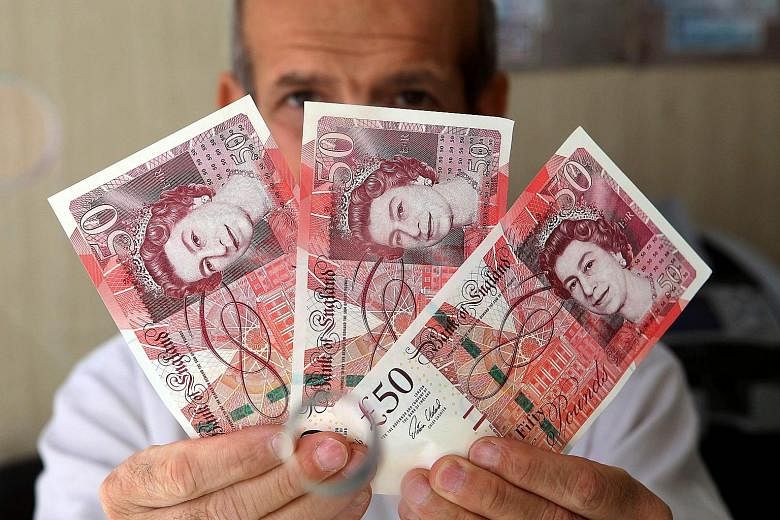Sterling and British shares yesterday remained under siege although Asian markets regained some semblance of calm, as investors sought answers in the wake of Brexit.
But markets are likely to remain volatile as uncertainty mounts over the next steps for Britain following the country's stunning vote last week to leave the European Union.
The pound hovered at 30-year lows to the US dollar even as Finance Minister George Osborne sought to soothe nerves by saying the British economy was "as strong as could be" to deal with the fallout of the referendum.
Sterling weakened to US$1.344 in Asian trade yesterday afternoon, after rising to US$1.367 in New York trading overnight.
Mr Timothy Peng, head of trading for Singapore at commodity and currency trading house INTL FCStone, said he was not surprised the pound fell below S$1.80 yesterday, its weakest against the Singdollar in at least 35 years.
"There's even some talk now of Britain not wanting to go through with Brexit. It's clear the leaders are very worried and aren't sure what to do next," he said.
The market tumult prompted Mr Osborne to address the nation just before the London stock market opened yesterday.
"Today I want to reassure the British people, and the global community, that Britain is ready to confront what the future holds for us from a position of strength," he said.
The government has contingency plans to shore up the economy if needed, he added.
Despite the reassurances, London's FTSE 100 stock index shed 0.8 per cent at the opening, after plunging 3.2 per cent last Friday, its sharpest fall since the 2008 global financial crisis.
Banking, property and airline stocks were particularly hard hit. Shares of Royal Bank of Scotland and Barclays both fell more than 10 per cent in the first two hours of trade, triggering intermittent automatic suspensions in trading.
Asian markets, however, were much steadier after plummeting last Friday.
Tokyo led the way, rising 2.39 per cent. Shanghai rose 1.5 per cent and Sydney edged up 0.47 per cent.
Even the bourses that ended in the red did not bleed too badly - Hong Kong lost 0.16 per cent and the local benchmark Straits Times Index shed 5.54 points, or 0.2 per cent, to 2,729.85.
NRA Capital research head Liu Jinshu said investors are likely over the initial panic of Brexit and have realised that this is no doomsday scenario.
"Back in the days of the euro debt crisis a few years ago, people were queueing up at banks in Greece and Cyprus; there were capital controls and withdrawal limits. Nothing like that is happening in Britain, and so the market's reaction is in line with that."


